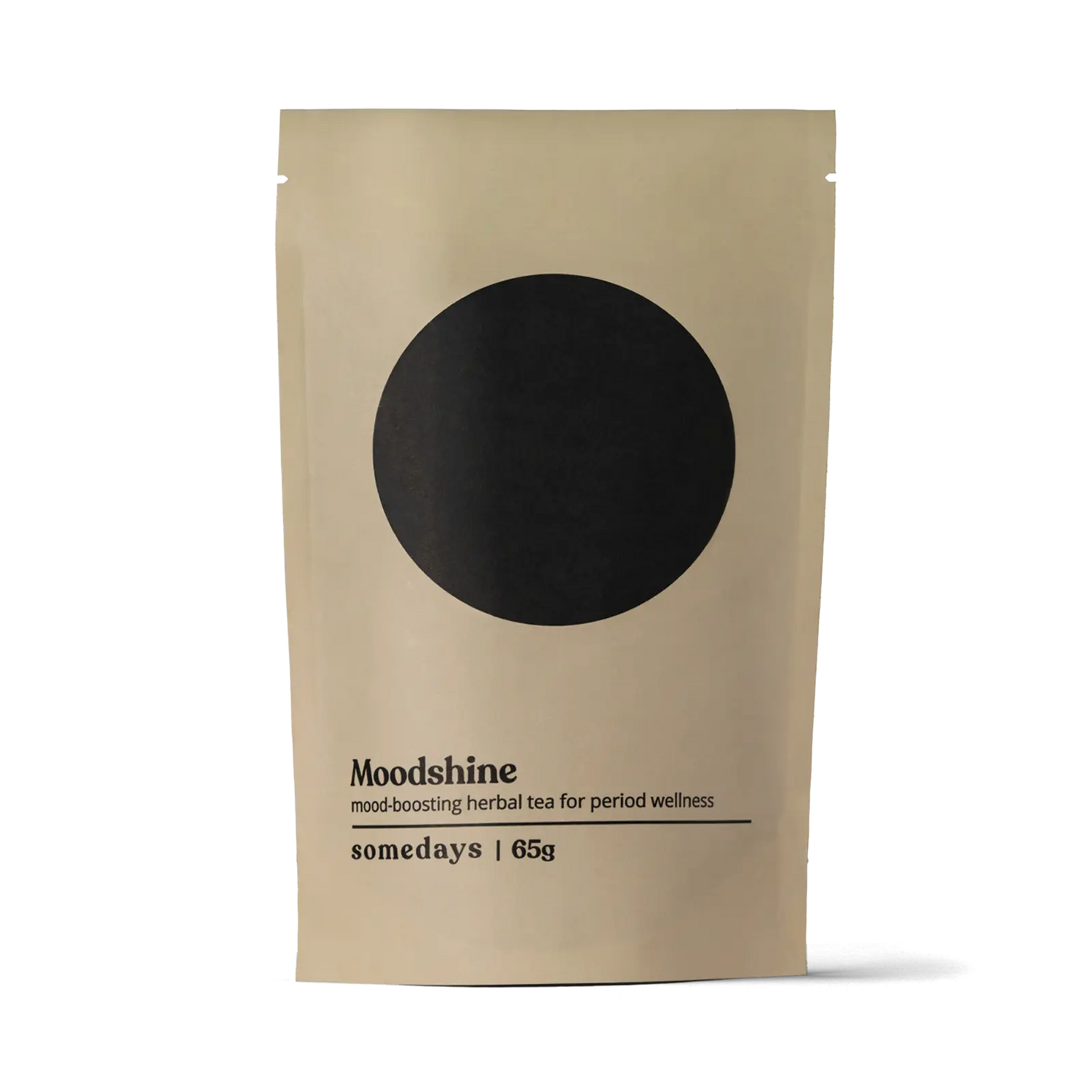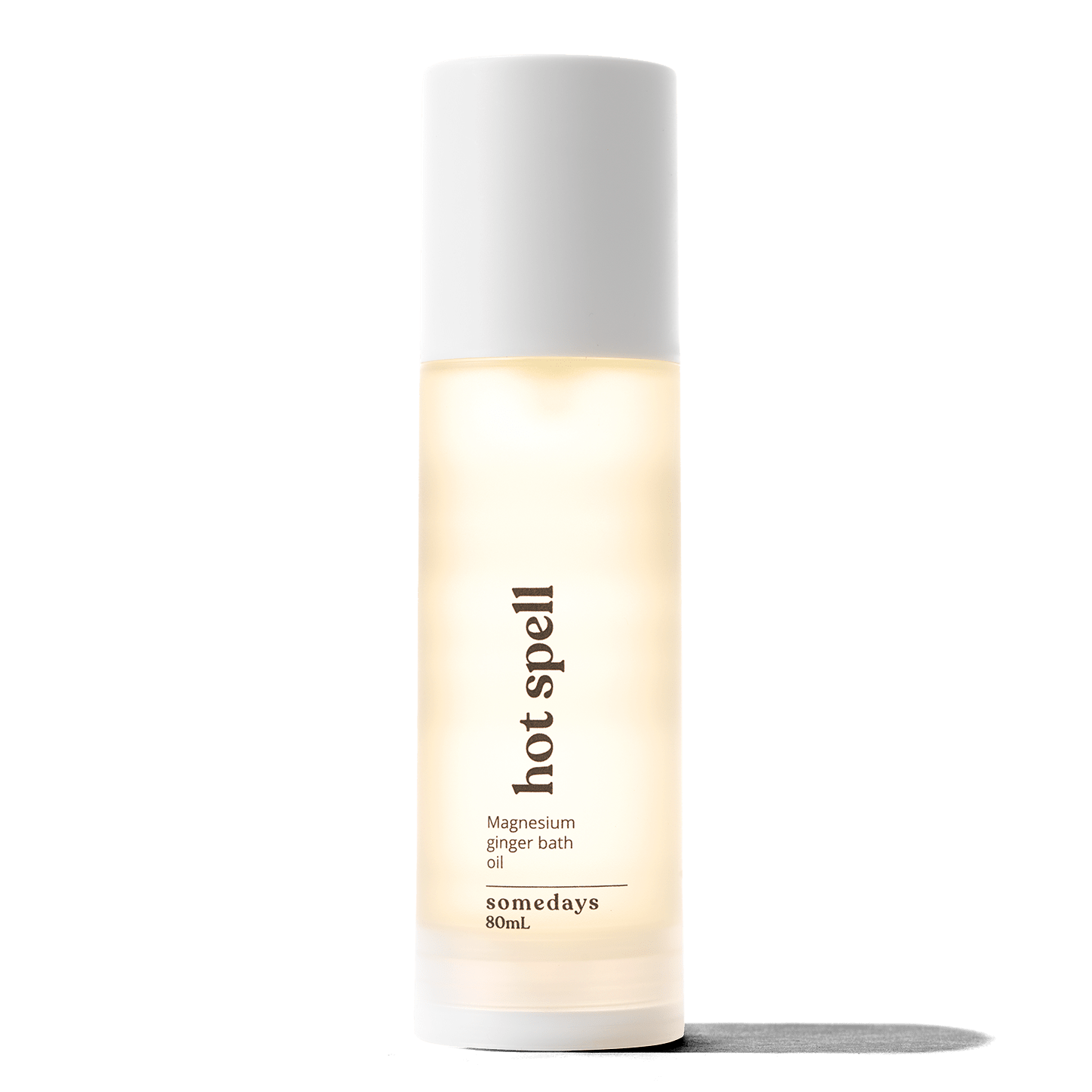The Impact of Stress On Your Menstrual Cycle: How to Find Balance

Stress—whether its source is a taxing work life, a trialed relationship dynamic, a traumatic event in your childhood, training for an ultra marathon, taking a full course load at an academic institution, or being a parent—is an embodied experience that echoes in the body after it’s initial instigation. The brain and body systems that process emotional and physical stress are deeply connected with the hormonal apparatus and the nervous system. Therefore, chronic stress and the experience of an individual's menstrual cycle are going to be inextricably linked.
What is Stress?
Not all stress is bad; stress is the body's natural response to perceived threats or challenges. The body's perception of a stressor, triggers a cascade of hormones, including adrenaline and cortisol, which prepare the body to deal with the situation—often referred to as the "fight or flight" response. Small doses of stress, or acute stress which happens within a few minutes to a few hours, can keep us alert and focused. However, chronic stress and regular stressors can lead to a host of health issues due to the excess of adrenaline and cortisol in the body.
What Causes Stress?
What is considered stress for you will be different from someone else, and will change throughout your lifetime depending on a variety of factors.
Some common external chronic stressors include work pressures, financial difficulties, relationship problems, natural disasters, physical accidents and major life changes like moving or losing a loved one. On a personal note, I discovered that during a very hormonally unbalanced time in my life, it was high-impact cardio such as sprinting and HIIT workouts paired with an intensive academic program that was triggering my irregular period as well as a handful of other symptoms for over a year. These external stressors can and most likely manifest internally. Internal stressors are thoughts, feelings, and how we perceive challenges. Mental health diagnoses can be an internal source of chronic stress.
Understanding your own personal chronic stressors can be a complex and timely process—be patient with yourself. Consider carving out regular 5-10 minute check-ins where you list down your perceived chronic stressors in your life, even if you can’t necessarily change or get rid of those things. Just acknowledging the chronic stressors in your life.
How Can Stress Impact My Menstrual Cycle?
Stress impacts your menstrual cycle through its effect on the hypothalamus, a part of your brain that regulates hormones. When you're stressed, the hypothalamus releases corticotropin-releasing hormone (CRH), which prompts the adrenal glands to release cortisol. The body under stress is expressing unreadiness for ovulation and pregnancy, therefore elevated stress, especially chronic, will most likely disrupt your menstrual cycle. Here are some common impacts that stress can have on the menstrual cycle:
Hormonal Changes
Cortisol and adrenaline can disrupt the normal balance of estrogen and progesterone in the body, key reproductive hormones in a healthy cycle.
Anovulation
High levels of stress can cause the release of gonadotropin-releasing hormone (GnRH), which affects the release of luteinizing hormone (LH) and follicle-stimulating hormone (FSH), key hormones in ovulation. This disruption can prevent ovulation from occurring, resulting in skipped menstruation or infertility. Even if ovulation occurs, stress may affect the quality of the ovulation cycle.
Irregular Periods
High-stress levels can delay ovulation, causing your period to be late or skipped altogether.
Heavier or Lighter Flow
Stress can affect the thickness of the uterine lining, resulting in a heavier or lighter menstrual flow.
Increased PMS Symptoms
Stress can exacerbate premenstrual syndrome (PMS) symptoms like bloating, mood swings, and cramps.
Heightened Pain Sensitivity
Chronic stress sensitizes the central nervous system, and creates changes in the neural circuits responsible for processing pain signals, resulting in increased pain sensitivity and heightened perception of pain. This may make it difficult to move through cramping and other period-related pain in the body.
Increased Inflammation
Stress triggers inflammatory responses in the body, which can worsen period pain and cause bloating.
Sleep Disruptions
Stress often interferes with sleep, and poor sleep can exacerbate PMS symptoms and fatigue during your period.
Emotional Impact
Stress can alter cognitive appraisals, leading individuals to perceive pain as more threatening or intense. This cognitive bias can intensify pain perception and contribute to the development of chronic pain conditions. This is particularly relevant to those who have pre-existing menstrual disorders such as endometriosis or PCOS.
As you can see, chronic stress can have a spiraling domino effect on an individual's menstrual health and when left unacknowledged can cause long-term issues that can disrupt many areas of one's life.
How Do I Balance Stress Throughout My Cycle?
Managing and balancing stressors isn’t as simple as cutting down your work hours. Not all stressors can be simply removed from life and many are deeply entrenched in our bodies and existence. A very important first step in minimizing the impacts of stress on menstruation is acknowledging that something is causing you chronic stress. From there, you can create sustainable routines and practices to work through and around those stressors in your life.
Daily Relaxation Rituals
Write a daily affirmation in your journal at the end of the day, practice 10 diaphragmatic breaths during your lunch break, or rub a drop of your favorite essential oil on your temples before you get on the bus to school. These rituals don’t have to be time-consuming, however, the intentionality and regularity can allow for small opportunities for your nervous system to regulate and stabilize. My personal favorite is rubbing Somedays Cramp Cream and Afterflow Oil on my body post-shower in the morning; an aromatic and somatic ritual that takes less than five minutes.
Stay Active
Regular physical activity is a natural stress reliever. Be wary of exercise becoming a stressor; tossing in a high-intensity workout on four hours of sleep will just lead to further inflammation. However, gentle exercises like yoga or walking can improve your mood and reduce any menstrual discomfort caused by stress.
Prioritize Sleep
Aim for 7-9 hours of quality sleep per night. If this isn’t attainable, try your best to establish a relaxing bedtime routine and a sleep-friendly environment. Consider leaving devices in another room, reading a chapter of a book before bed or wearing a sleep mask to eliminate external light sources.
Eat a Balanced Diet
A nutrient-dense diet can help stabilize your mood and energy levels. Focus on whole foods, including fruits, vegetables, lean proteins, and whole grains. Avoid excessive caffeine and sugar, which can contribute to stress and heightened menstrual symptoms. Swap out your afternoon coffee for a cup of Somedays Moodshine Tea, filled with plant medicines such as strawberry leaf, chamomile and lemon balm, known for their soothing and calming effects, both on the mind and body.
Stay Connected
Don’t hesitate to reach out to friends, family, or a therapist for support. Talking about your stress can provide relief and help you feel more connected.
Understanding the relationship between stress and your menstrual cycle can empower you to take proactive steps to manage both. While it may not be possible to eliminate all stress from your life, adopting healthy coping strategies can make a significant difference in how you feel during your period. Acknowledging the stress that may be impacting your periods at all stages of your cycle is a small yet significant step in being an advocate for your own menstrual wellness.
Much love.
Ella Adkins is a writer, teacher and occupier on the ancestral homelands of the Sḵwx̱wú7mesh, Stó:lō and Səl̓ílwətaʔ/Selilwitulh and xʷməθkʷəy̓əm Nations. Her work has been featured in Femme Art Review, Peripheral Review, SAD Mag, ReIssue and Public Parking.
Previous Article All Articles Next Article
All Articles


